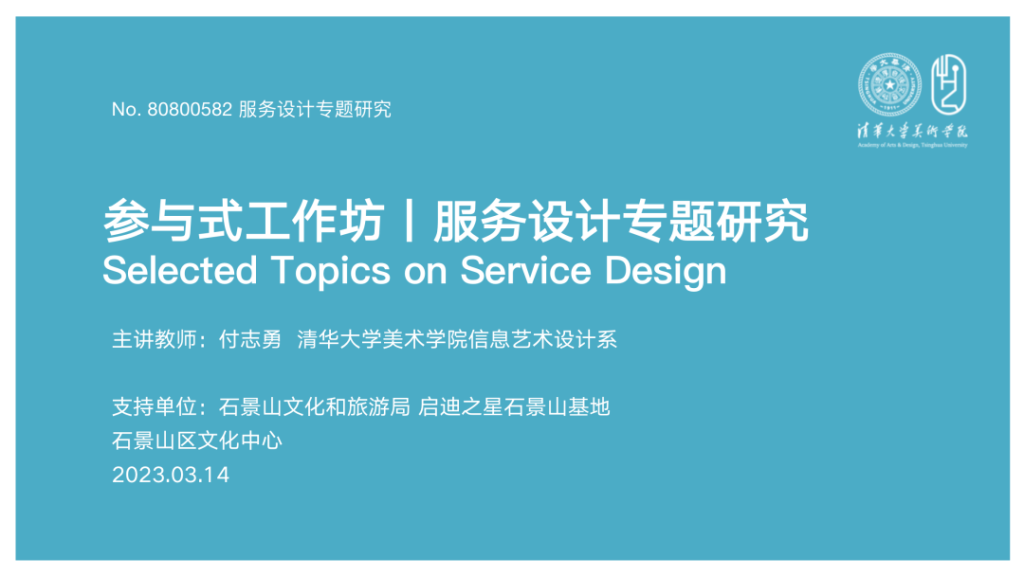
In the afternoon of March 14, students and faculty of Tsinghua University's "Service Design" graduate course were led by Mr. Fu Zhiyong from the Department of Information Art and Design of the Academy of Fine Arts to Shijingshan District to hold a participatory workshop and conduct field research on cultural tourism projects. The event was supported by Shijingshan District Culture and Tourism Bureau and Qidian Star (Shijingshan) Base.
At 2:00 pm, a participatory workshop on "Service Design" was held at Shijingshan Cultural Center with the innovative theme of "Culture and Tourism Metaverse". Ms. Tang Ming, Party Secretary and Director of Beijing Shijingshan Cultural and Tourism Bureau, Shao Xiaoxiao, Deputy General Manager of Qidian Star (Shijingshan) Base, and mentors from cultural and tourism management, cultural and tourism research and metaverse technology participated in this workshop.
The workshop was hosted by Mr. Fu Zhiyong, and Director Tang Ming gave the kick-off speech. She hoped that the students in each group would create practical design solutions with the support of experts in the field, and contribute their wisdom to the development of cultural tourism in the western part of Beijing with the characteristics of half a mountain and half a city.
Mr. Fu Zhiyong introduced this workshop theme, process arrangement and expert student grouping. The workshop was based on the insightful program of the course phase as the reporting content of each group, and invited industry experts and relevant stakeholders in Shijingshan to participate in the program discussion. Through the participatory workshop, the group wisdom was gathered to create a service system with equal benefits from the perspective of different cultural and tourism experience holders. The course focuses on the transformation from service content to experience value, and the use of metaverse creation tools to realize and validate ideas.
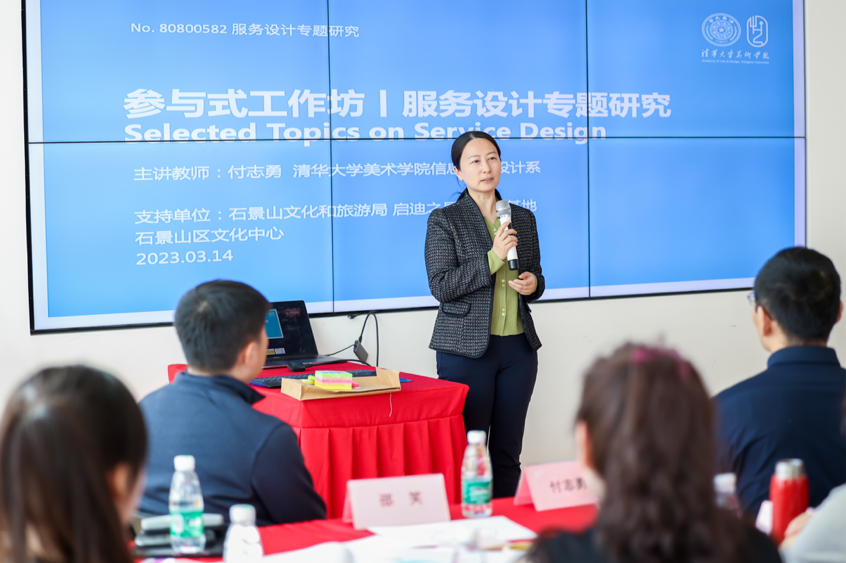
Figure 1 Director Tang Ming's speech at the Participatory Workshop
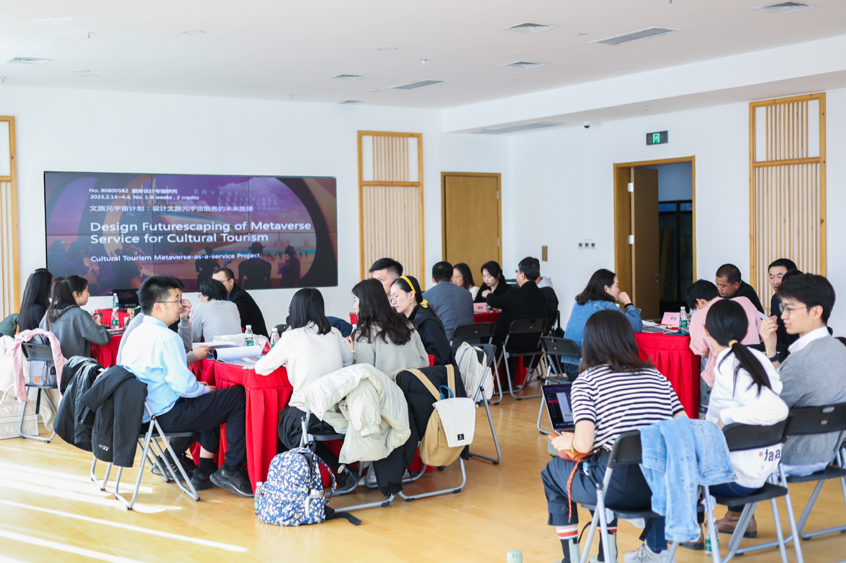
Figure 2 Participatory workshop site at Shijingshan Cultural Center
The four groups of students looked at the future picture based on design futures and service design tools, using family travel, backpackers, travelers and digital nomads as user portraits. During the participatory workshop, students in each group used printed design manuals and illustrations to introduce the current phase of the program to the experts in their group. At the same time, experts from various fields in the group also brought professional advice to the students based on their own experience and provided rich practical examples to inspire the deepening of the solutions.
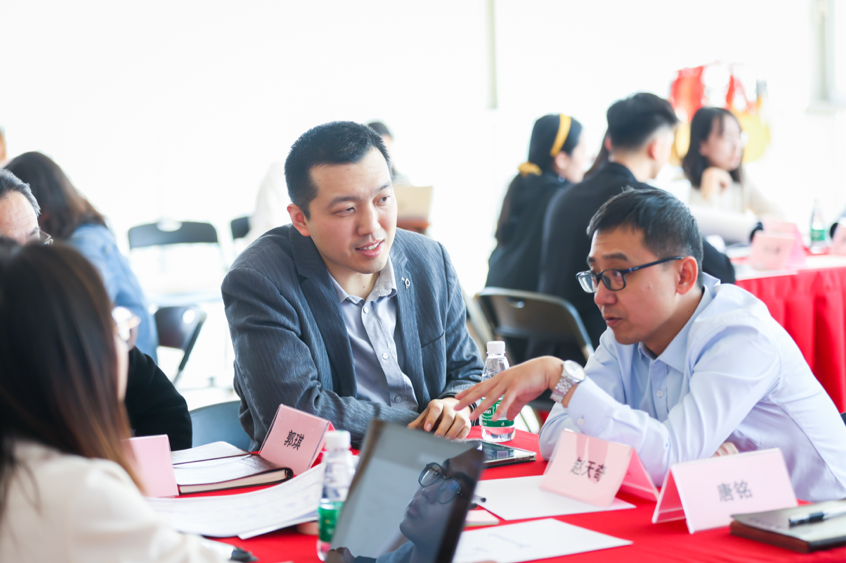
Figure 3 Discussion between experts and graduate student team
Figure 4 Graduate Student Team Prepares Adequate Design Content
After the experts' views were gathered and the program revised, four groups of students reported the results of this workshop in turn. The first group of students integrated the needs and resources of travelers and Shijingshan, and created opportunities to co-create the Shijingshan Yuan Universe cultural tourism platform, attract more travelers, and promote the sustainable development of Shijingshan tourism. The second group of students for the digital traveler group, to provide route planning and the recommendation function of the integration of food, accommodation and office, to create a meta-universe scene that combines online and offline to experience Shijingshan cultural tourism. The third group of programs aims to provide playable and learnable solutions to the current problems of little parent-child interaction, single education mode, unclear path planning and guiding signs in family cultural tourism. By constructing an AR interactive guide platform based on Shijingshan's characteristic IP, families can truly experience Shijingshan's historical and cultural charm while traveling, and further deepen their understanding through interaction and fun games. The fourth group of proposals is the design of a digital product and meta-universe service platform that explores the cultural and travel resources of Shijingshan area in Beijing and provides backpackers with the functions of guiding, information integration and strategy sharing. Director Tang Ming and Mr. Fu Zhiyong gave their comments respectively, pointing out the shortcomings and innovation points of the program, and indicating the direction for the students to optimize their subsequent programs.
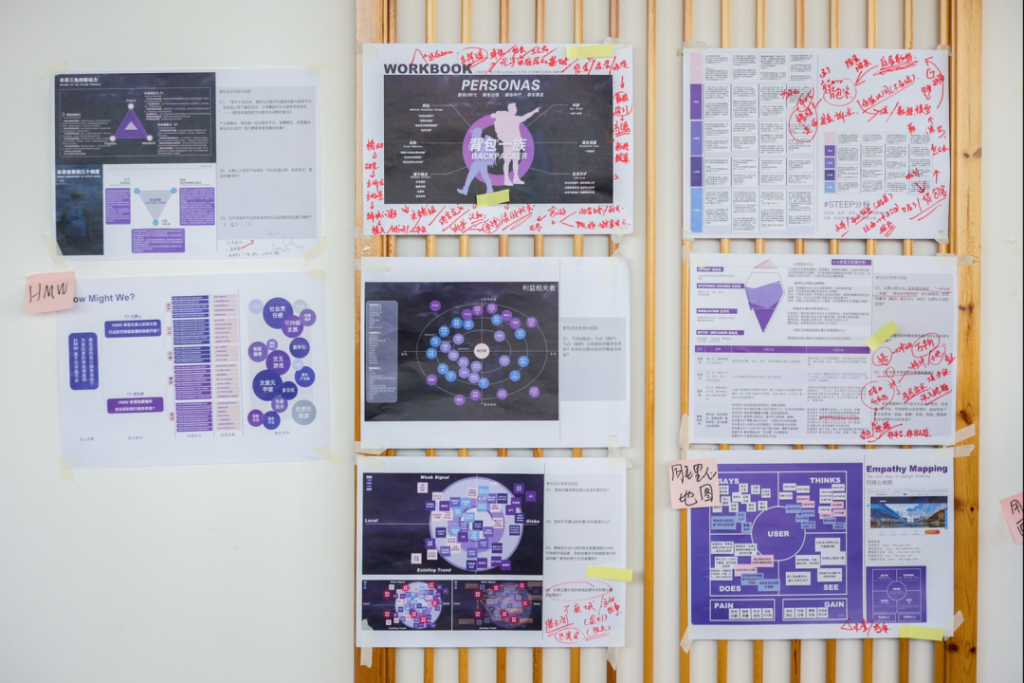
Figure 5 Staged output
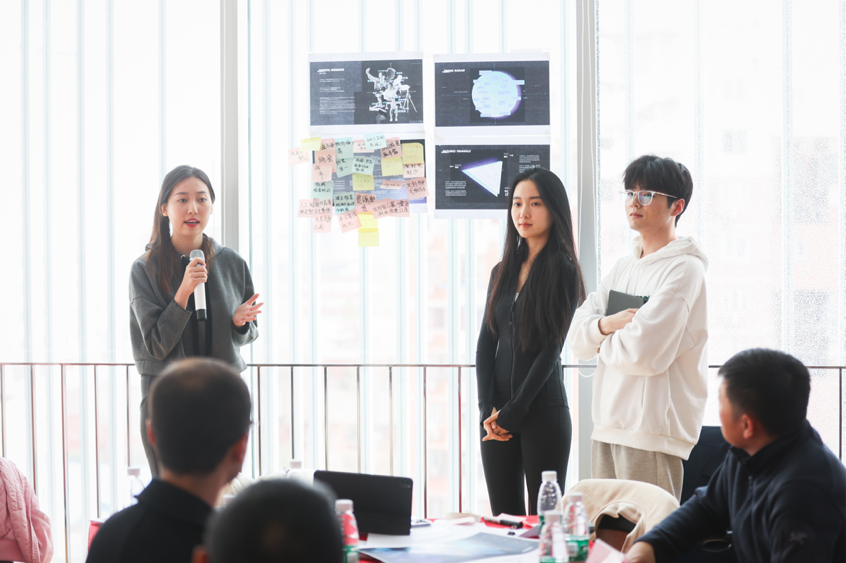
Figure 6 Graduate student team making a presentation
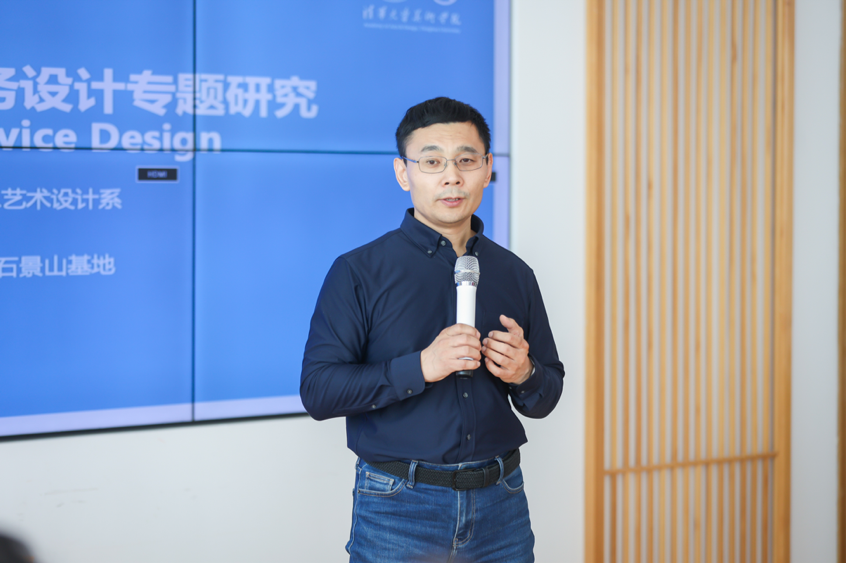
Figure 7 Teacher Fu Zhiyong summarizes
Finally, the course faculty and students invited the experts to participate in the program innovation as external support on an ongoing basis, and the participatory workshop ended with a group photo.
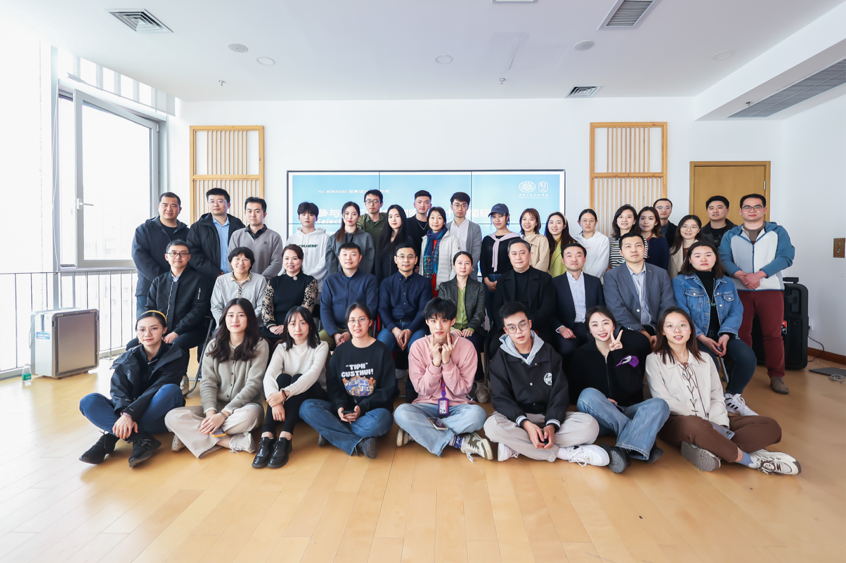
Figure 8 Group photo of all experts and teachers and students
After the workshop, the course students and teachers were led by experts from the Bureau of Cultural Tourism to Shijingshan District's iconic cultural and tourism scenes, including the Shougang Park Ancient Building Complex, the Pattern Mouth Neighborhood and the Fahai Temple. With the introduction of the cultural tourism experts, students were able to appreciate the splendid and fascinating ancient architecture, stone carvings, murals and scenery of western Beijing in China, and marveled at the handicraft skills of craftsmen 600 years ago. They also thought deeply about the cultural inheritance of the Winter Olympics and the industrial heritage protection and revitalization program of Shougang Park.
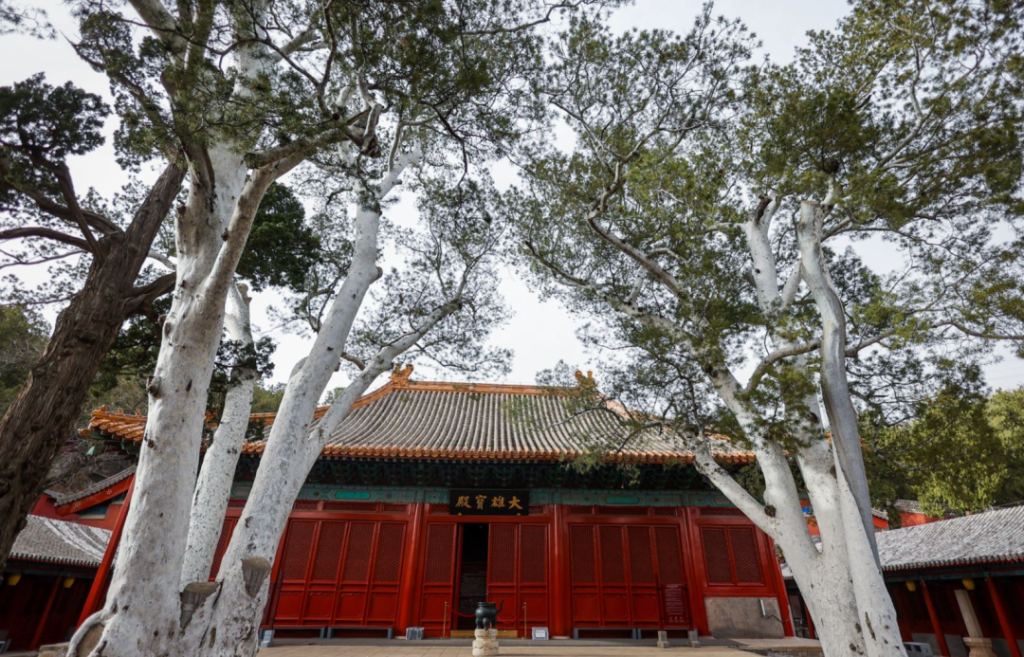
Figure 9 Fahai Temple Research
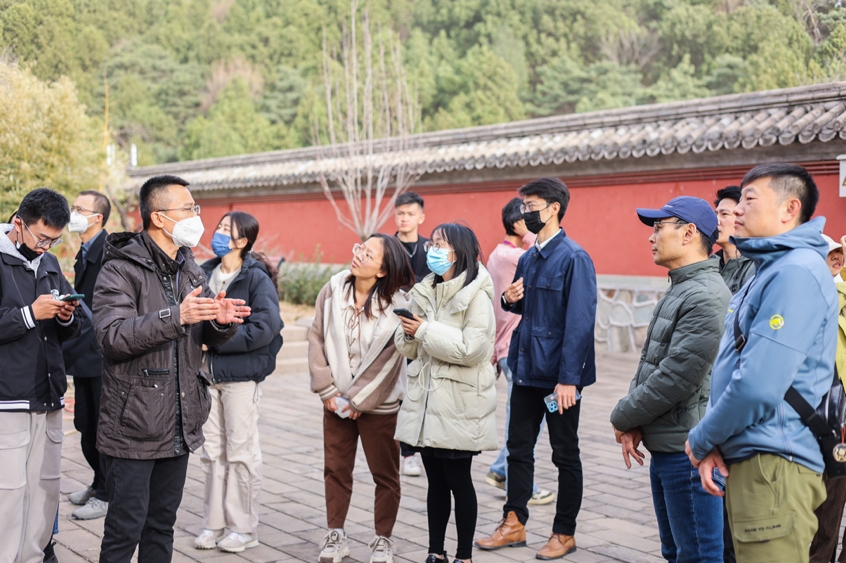
Figure 10 Experts from Fahai Temple giving a presentation to teachers and students
Through this in-depth cultural tourism experience in Shijingshan, students discussed and exchanged ideas with local experts to improve each group's proposal and strengthen its practicality. The field research on the cultural tourism scene also provided first-hand information for the completion of the subsequent creative solutions, allowing students to re-examine the creativity and feasibility of the solutions from the perspective of the first-person experience. The results of this course will also be presented at this year's Shijingshan Cultural and Tourism Metaverse Future Picture Exhibition, where a more complete and grounded cultural and tourism metaverse experience proposal will be presented.
Mr. Fu Zhiyong said that he will subsequently explore and build the industry standard of Shijingshan cultural and tourism digital innovation talents by carrying out Shijingshan cultural and tourism talent block project to build the highland of Shijingshan cultural and tourism innovation talents. By continuing to develop Shijingshan's special cultural and creative products, we will actively create a benchmark for Shijingshan's cultural and tourism integration and add bricks to the upgrading of Shijingshan's cultural and creative industry.
Four groups of twelve master's students from Tsinghua University, two post-doctoral students, six doctoral students in design and twelve mentoring guests from management, cultural tourism and science and technology participated in this participatory workshop. Among the experts in cultural tourism management included: Liu Fengying, Director of Shijingshan District Museum; Li Wei, Head of Ancient Building Group Cultural Preservation Institute; Ren Hehe, Cultural Heritage Section, Shijingshan District Culture and Tourism Bureau; Guo Qi, Development Planning Section, Shijingshan District Culture and Tourism Bureau; experts in cultural tourism included: Tao Jun, Deputy Director of Fahai Temple Cultural Heritage Conservation Institute; Zhu Longbin, Member of Shijingshan District CPPCC; Miao Tian'e, Senior Researcher, Shijingshan District Culture and Tourism Bureau; Fahai Temple staff Wei Haitao; experts in the field of metaverse include: Zhao Chenfei, CEO of Beijing Kaibe Technology Co., Ltd; Zhao Tianqi, Founder & CEO of Beijing Ju Li Dimension Technology Co., Ltd; Li Zhihao, head of web3 social products; and Yu Danhe, manager of digital assets department of Beijing Virtual Dynamic Point Technology Co.
Based on the concept of "Metaverse as-a-service", this course focuses on the construction of cultural tourism scenarios and exploration of service models in the era of Web 3.0, focusing on the transformation from content to value, and using metaverse creation tools to realize and verify. The metaverse creates new experiences and social spaces that can connect the world, virtual identities, creator economies and decentralized organizational forms, bringing new opportunities for innovation in cultural tourism, non-foreign heritage and cultural creation. In the cultural tourism metaverse, on the one hand, a global perspective is used to reproduce and display cultural content and achieve interaction with creators and living people, and on the other hand, Web 3.0 and creative technologies are used to facilitate the transformation of digital assets and drive the regional economy, and to achieve dynamic management of the digital economy and sustainable development.
Course instructor: Fu Zhiyong
Course Assistant Teachers: Zhang Jin, Wang Jiayue, Li Yin, Chen Entertainment
Academic Support: Ping Gong, Lin Zhu, Jiawei Li
Course students: Teng Yue, Zhang Shuang, Guo Haoxuan, Yang Hanhui, Bai Bai Qi, Bao Yihan, Liu Fenglu, Zhou Peixuan, Yin Jianing, Zhuo Xinyi, Kang Aiying, Wang Qingwei

